
Taking the form of a dialogue between Socrates, Gorgias, Polus and Callicles, GORGIAS debates perennial questions about the nature of government and those who aspire to public office. Are high moral standards essential or should we give our preference to the pragmatist who gets things done or negotiates successfully? …
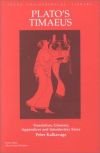
Timaeus is one of Plato's dialogues, mostly in the form of a long monologue given by the titular character, written circa 360 BC. The work puts forward speculation on the nature of the physical world and human beings and is followed by the dialogue Critias. Participants in the dialogue include Socrates, Timaeus of …
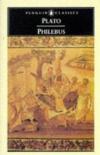
The Philebus, is one of the surviving Socratic dialogues written in the 4th century BC by the ancient Greek philosopher Plato. Apart from Socrates, the primary speaker in Philebus, the other speakers are Philebus and Protarchus. But Philebus, who wants to defend the life of pleasure, hedonism, which Socrates describes …
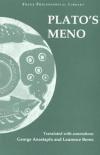
Meno is a Socratic dialogue written by Plato. It attempts to determine the definition of virtue, or arete, meaning virtue in general, rather than particular virtues, such as justice or temperance. The first part of the work is written in the Socratic dialectical style and Meno is reduced to confusion or aporia. In …
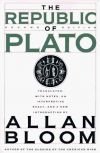
"Republic" is the central work of the Western world's most famous philosopher. Essentially an inquiry into morality, "Republic" also contains crucial arguments and insights into many other areas of philosophy. It is also a literary masterpiece: the philosophy is presented for the most part for the ordinary reader, who …

The Theaetetus is one of Plato's dialogues concerning the nature of knowledge, written circa 369 BC. In this dialogue, Socrates and Theaetetus discuss three definitions of knowledge: knowledge as nothing but perception, knowledge as true judgement, and, finally, knowledge as a true judgement with an account. Each of …
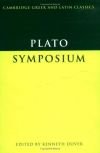
The Symposium is a philosophical text by Plato dated c. 385–370 BC. It concerns itself at one level with the genesis, purpose and nature of love, and is the origin of the concept of Platonic love. Love is examined in a sequence of speeches by men attending a symposium, or drinking party. Each man must deliver an …
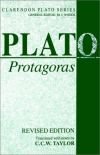
Protagoras is a dialogue by Plato. The traditional subtitle is "or the Sophists". The main argument is between the elderly Protagoras, a celebrated Sophist, and Socrates. The discussion takes place at the home of Callias, who is host to Protagoras while he is in town, and concerns the nature of Sophists, the unity and …
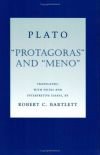
Protagoras is a dialogue by Plato. The traditional subtitle is "or the Sophists". The main argument is between the elderly Protagoras, a celebrated Sophist, and Socrates. The discussion takes place at the home of Callias, who is host to Protagoras while he is in town, and concerns the nature of Sophists, the unity and …

Parmenides is one of the dialogues of Plato. It is widely considered to be one of the more, if not the most, challenging and enigmatic of Plato's dialogues. The Parmenides purports to be an account of a meeting between the two great philosophers of the Eleatic school, Parmenides and Zeno of Elea, and a young Socrates. …

 English
English Español
Español Deutsch
Deutsch